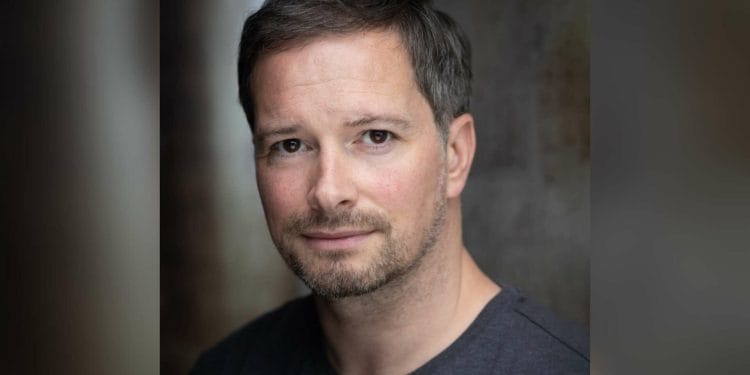Andrew Langtree stars in the revival of Clybourne Park at The Park Theatre, originally planned for the play’s 10th anniversary year, but delayed because of the pandemic, the productions will open on 21 March 2022, with previews from 16 March, and runs until 23 April.
Winner of both the Tony and Olivier Award for Best Play and the Pulitzer Prize for author Bruce Norris, Clybourne Park is a razor-sharp satire about the politics of race and real estate. The play returns to London following sell out runs at The Royal Court and in the West End.
Bruce Norris’ seminal play Clybourne Park, starring Andrew Langtree, is directed by Oliver Kaderbhai.
You’re appearing in Clybourne Park at The Park Theatre, what can you tell us about the play?
Clybourne Park is a rare and wonderful beast. On its first staging, it won the Tony, the Olivier and the Pulitzer prize. Though I think the play will resonate completely differently twelve years on and I’m excited to get it in front of an audience.
What were your first impressions when you initially read Bruce Norris’ script?
First of all, I was grabbed by the sharpness of the dialogue and they way in which the characters flit from subject to subject in quite a natural way. The play is incredibly skilfully written, often very funny and sometimes pretty shocking.
Tell us a little about your characters, what excites you the most about them?
So, each actor plays a different role in each act. My first character, Karl, has been seen before in the brilliant play, A Raisin in the Sun, by Lorraine Hansberry. If you’re familiar with that play, then the motives he arrives with in Clybourne are clear. In this play though, we get to see more depth to him.
To me, he seems to represent the mouthpiece of the powerful white members of the community presented in 1959. He speaks for the Rotarians, but also for a systematically racist wider society. Steve is a character who is ignorant in a very different way. He’s educated, but also lacks tact and is extremely pedantic, to the point of causing offence to just about everyone present.
You were in dress rehearsals for this play when the pandemic struck, how does it feel to finally be bringing it to the stage?
I think we were all devastated to have worked on the play for almost a month and then to have had to let it go. I hung the script up in a tote bag on our stairs for two years and was thrilled to finally be able to take it out again. It’s important to acknowledge that the play deals primarily with race and the ways in which race decides communities, so presenting the piece so soon after the murder of George Floyd and the start of the Black Lives Matter movement will bring its own fresh challenges for both the company and those in the audience.
How have rehearsals been going, and what are you enjoying about working with this cast?
Well, we begin rehearsals again on Monday and with two new actors joining the company, so it will be an entirely fresh start. I’ve been trying to get ahead a little on the dialogue for act two. On the first day of our original rehearsal process, we received an apology from Bruce Norris, the writer, for the difficulty of the material in the second half. For the actors, it’s like a very sophisticated game of Bop It, so we’ll see how it goes, eh?
What would you say to anyone thinking of booking to see Clybourne Park?
First of all, it’s a rare opportunity to see a brilliant play, which won the Tony, the Olivier and a Pulitzer prize when first staged. These plays don’t come round very often. After that, I think I’d advise people to attend with an open mind. The play tackles some very difficult subject matter and goes to places you perhaps don’t visit very often in a theatre. Difficult questions are posed by the play, but not necessarily answered.


















Comments 1